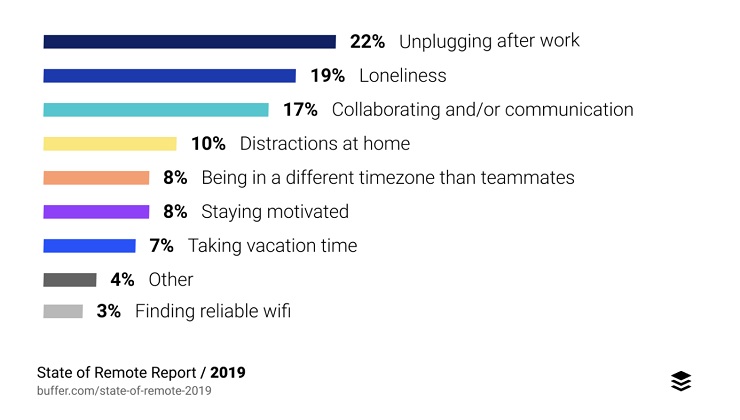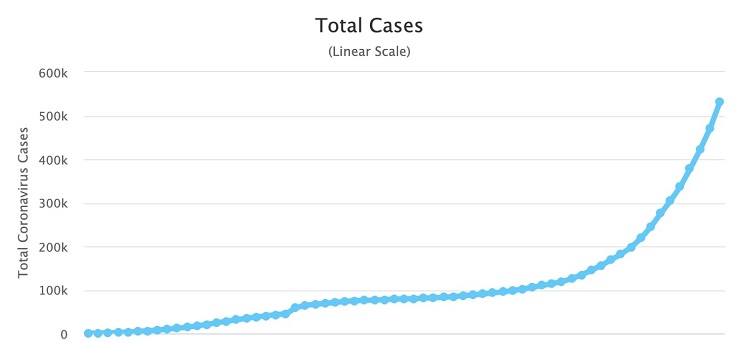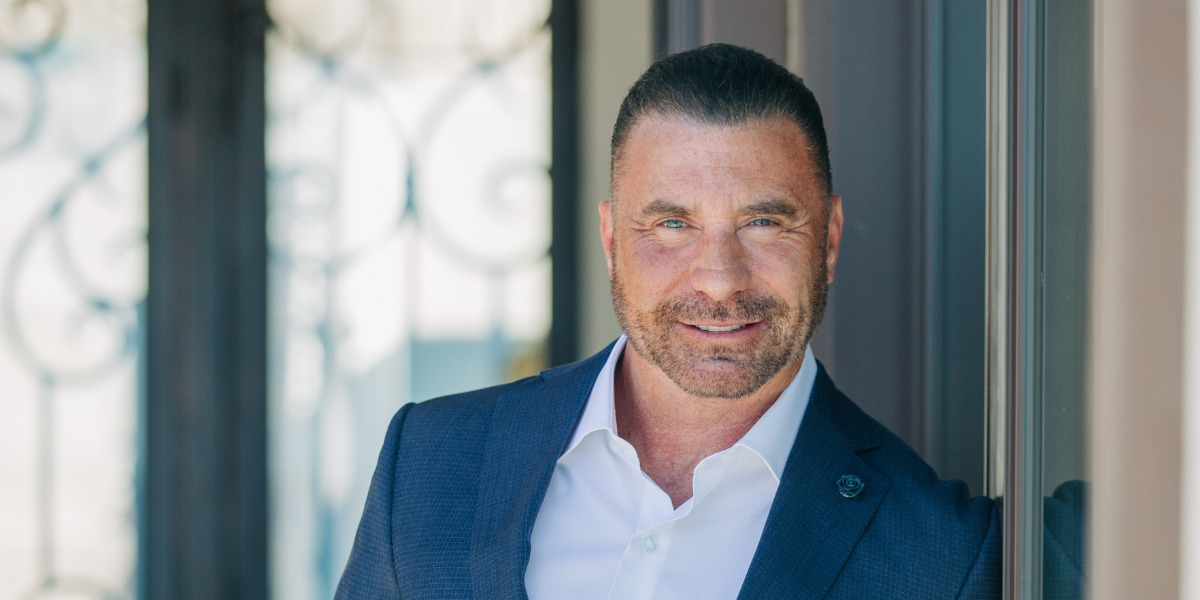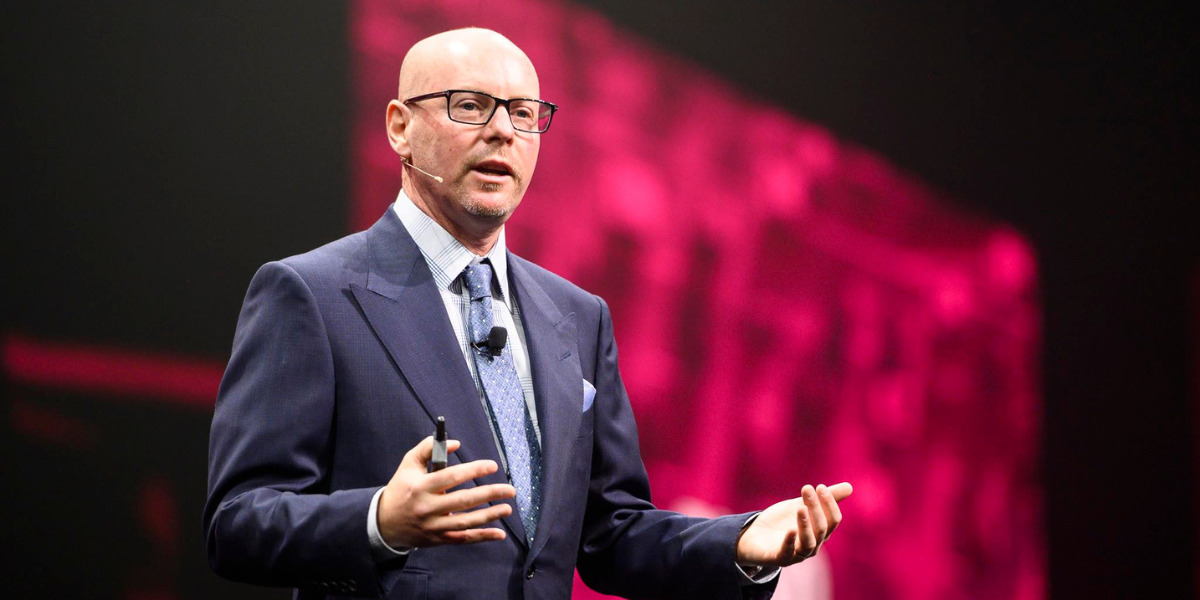The COVID-19 global pandemic is causing one of the biggest shocks to the global economy in history. We have felt it here at Foundr and we know you, our Foundr family, are also feeling it.
In difficult times like these, every business needs to take stock of where they are and where they’re going, to become as strong and resilient as possible. But adversity also exposes new needs and opportunities, both of which entrepreneurs should be watching out for.
So how do you spot those opportunities? How do you avoid the danger zones in the economy right now? And how do you navigate these challenging times so you come out the other side unscathed, or only slightly scarred?
To answer these questions and more, our CEO Nathan Chan called in his personal advisor Steve McLeod to share some hard-fought wisdom with the Foundr audience.
Steve has turned his passion for helping people into a nationwide business, scaling his Fire and Safety Australia company to eight figures in 10 years. He has also worked with thousands of small, medium-sized, and large businesses over the years. And he’s seen what it takes to make it through difficult challenges, stronger than ever before. In the video below, he’s outlining critical strategies for every founder to follow right now so they can stay above water, and possibly even thrive in the face of one of the most sudden economic shifts in history.
Keep reading after the video as we unpack the key takeaways for you.
Immediate Actions for Founders to Take in Response to Covid-19
When the pandemic first started making headlines around the world, a lot of businesses carried on with a “business as usual” attitude.
But once entire cities began to shut down, countries started closing their borders, and nationwide quarantines took effect, it became clear this pandemic was not something you could simply ignore—no matter what line of business you were in.
“The worst thing you can do right now is put your head in the sand,” Steve says. “You’ve got to think proactively and take decisive actions today so that you’re prepared for whatever comes next. And there’s a real chance that some industries may have their doors closed for six months. I want entrepreneurs asking what happens if that’s the way this plays out. That’s the only way to prepare for what’s ahead.”
For some businesses, like restaurants, hotels, and airlines, their sales have already fallen off a cliff. But there’s a very real possibility that their sales will take a significant hit for the next 6-12 months.
That’s why Steve says you should already be thinking about what that means for your business. The last thing you want is to be making choices around cutting staff, breaking leases, and filing for bridge loans to cover bills, all under the duress of needing to make a decision ASAP.
“I think every founder should start to say, ‘If our sales decline by 50%, what does that mean for us?’ Or on the flip side, ‘What happens if our sales grow by 50% overnight? Can our suppliers handle that volume?’ Because the reality is some businesses are doing well right now while others are struggling to stay afloat.”
Walking through these kinds of scenarios is important because it gives founders and CEOs the most critical thing in Steve’s eyes: Certainty.
“The biggest thing you want right now is certainty around the things you can control,” Steve says.
The reality is, a lot is changing rapidly in the outside world, and founders need to give themselves as much clarity as possible around next steps for their businesses by doing a little bit of scenario planning.
Scenario planning will help you start to focus on the things you can control—like costs, conversations with employees around layoffs or hours needing to be cut, and treating your customers like gold—instead of just wondering “what if” all day.
But when you start going through these exercises, the one thing Steve cautions every entrepreneur against doing is slowing spending on marketing and advertising.
“It’s tempting right now to want to turn off all spending,” Steve says. “But that’s an overreaction that can cost you more than you would imagine, especially if you pull back your spending on advertising and marketing. If you turn that off, that could be disastrous.”
It’s like Henry Ford said, “A man who stops advertising to save money is like a man who stops a clock to save time.”
Steve says the first and most critical steps are to get a sense of where sales might go in the next 3-6 months, and then where you can cut costs—without eating into your marketing and sales budget. This kind of clarity can give you a major advantage in times of extreme uncertainty.
How to Effectively Pivot Your Marketing Messaging
In the wake of the pandemic, businesses across the globe are having to make extreme adjustments.
The reality is, if you were selling a course that showed people how to build a business that allowed them to to travel the world and work from anywhere, that messaging probably wouldn’t work anymore, at least not for some time.
You’d need to adjust your messaging to a marketplace where travel isn’t even possible at the moment. While freedom to travel might not be a selling point, perhaps flexibility and being able to earn income independent from a job is.
“You have to be aware of these changes in the marketplace and adjust your messaging accordingly. The reality is, this isn’t a niche issue. This is a global issue, and if you aren’t sensitive to it, your sales might suffer.”
So you should pivot where necessary to keep your messaging relevant and sales coming in. But just make sure you’re honest about the changes you make.
“Don’t manipulate people or lie. People will remember what you say during these times, now more than ever,” Steve says.
If you force your relevancy or outright lie, consumers will see through it in an instant.
For example, if you sell CBD oil, talking about the potential antiseptic qualities it has will come across as fearmongering and manipulative, as CBD oil is in no way a treatment against this virus. You would be doing a lot more harm than good.
However, talking about the potential for CBD to alleviate stress during these extra stressful times and running a sale on your products could be a way to deepen the bond with your customers.
The key is just being honest in your marketing. Steve says, “Honesty is always how you win, but it’s especially true in these times.”
The Mindset of Entrepreneurs Who Win the Battle Against Covid-19
If you’ve found yourself reading more news lately, you’re not alone. According to some reports, traffic to news sites is up by more than 30% over the same period last year.
But Steve says, “If you’re reading the headlines all day, that’s just going to cause worry and fear. And when you’re fearful, you’re not going to operate your business from a place of strength.”
Of course, with everything that’s going on, it’s not just impossible, but it’s also irresponsible to completely unplug from the news. But if you’re only focusing on news updates, you could miss opportunities that lie ahead. Or worse, you might not be dedicating your time where it’s best spent.
When others are reacting to the news, you can be taking decisive actions to put your business in a position to grow and get ahead.
One of the most underestimated parts of growing any business is having your head in the right place. And Steve says that founders should focus as much as possible on their businesses instead of the latest news cycles.
Effectively Managing a Remote Team

Source
As COVID-19 has spread, most employers have been forced to make their teams entirely remote.
Under ideal circumstances, both employees and employers would’ve had ample time to prepare, get educated around remote work best practices and have all the tools necessary to thrive.
But the situation is not ideal. Many people were tossed into this totally unprepared.
That’s why Steve says, “The best thing you can do is to create some form of routine. Even if it’s just a small daily meeting, that can be huge toward helping your team stay productive when forced into remote work.”
While it might seem easy, working remotely comes with challenges and it’s critical founders give their teams the tools and information they need to thrive during these times.
For many, this is the first time that they’re being left to set their own hours and work from their couches. And a lot of people have no idea how to best structure their days. So if you’re a team leader, it’s critical that you teach them and ensure they feel equipped for the challenges of remote work.
Steve encourages teams and leaders to continue doing team activities like virtual happy hours and lunches if they can.
“You want people to be able to adjust to this situation and, in total isolation, we risk huge hits in productivity, team happiness, and more. Get your team together whenever possible, even when you’re remote.”
If you’re looking for help with remote work best practices, you might want to check out Getting Real, an ebook on building a web app startup, by Jason Fried, the founder of Basecamp (a completely remote company). He’s now giving away the book for free, and there’s a bunch of info in there on managing a team.
Controlling Expenses Is Critical for Every Small Business Right Now
According to JPMorgan, “Half of all small businesses hold a cash buffer of less than one month. Moreover, 25% of small businesses hold fewer than 13 cash buffer days in reserve.”
In other words, as we approach a couple of months into this crisis, more than half of small businesses could be left staring at a bank account dwindling dangerously close to a zero balance.
“Controlling costs right now is more critical than ever before,” Steve says.
He recommends compiling a list of all expenses and labeling them as either “must have” or “nice to have.”
Every item that’s simply nice to have has got to go.
“Every dollar you cut is a dollar toward your survival. And some cuts will be brutally deep, but it’s got to be done in the name of saving or extending the life of your business.”
Contingency Planning for Sickness Among Your Team
This graph gives you a sense of just how fast this virus is spreading, and by the time you see this, it will already be very outdated.
“The harsh reality is some of your team members will get sick. But instead of panicking if and when this happens, you should know what happens if key members get sick.”
For example, if your head of IT were to become ill, would you be locked out of all your servers? Does anyone else know how to do this person’s job? Who would step in and help?
“This kind of contingency planning is important, especially during these times,” Steve says, “because you have people working from home and unable to access each other and their tools in the same way they normally would.”
That’s why Steve recommends that every key employee should create a simple one-page action plan with critical logins, contact info, and key tasks that others should carry out, should they get sick.
“This is how you avoid disaster scenarios getting even worse, by planning.”
Can You Launch Products During the Pandemic?
One challenge that many businesses have run into is that they had a product launch planned for March, April, or May and are unsure how to proceed.
“Of course you want to be sensitive to the current landscape, but now is not the time to pull your foot off the gas pedal completely,” Steve says. “Push forward, but possibly pivot your messaging.”
In other words, keep selling, if you can sell.
For example, many in-person businesses, like personal trainers and counselors, have taken their practices online for virtual coaching. Some events that got postponed or cancelled pivoted to virtual summits.
“The key,” as Steve says, “is to not stop your business activity entirely.”
In fact, now more than ever, he recommends trying to launch some type of product that gives you recurring revenue.
For example, if you sell online courses, maybe now is the time to launch a monthly membership with weekly Q&As.
If you run a restaurant, maybe create a virtual happy hour club and send people weekly cocktail recipes for a few dollars.
If you run an ecommerce store, maybe run deeper sales than ever before or give amazing bonuses with your subscription products.
“Recurring revenue is especially powerful during these times. If you can create it, do it—100%, right now,” Steve says.
Final Thoughts for Founders
These will be some of the most trying times for entrepreneurs in modern history. But there are calculated actions that every entrepreneur can take to keep their head above water and, possibly, even thrive during these times.
The biggest thing is to not be scared and to give yourself whatever certainty you can. Plan for the worst, hope for the best and be grateful for anything in between.
If you’ve been struggling or want additional help, be sure to subscribe to future Foundr videos and content. We’ll be doing our best to guide founders through these challenging times with exclusive interviews, tips, and more.
Be well and be safe, Foundr family!

















